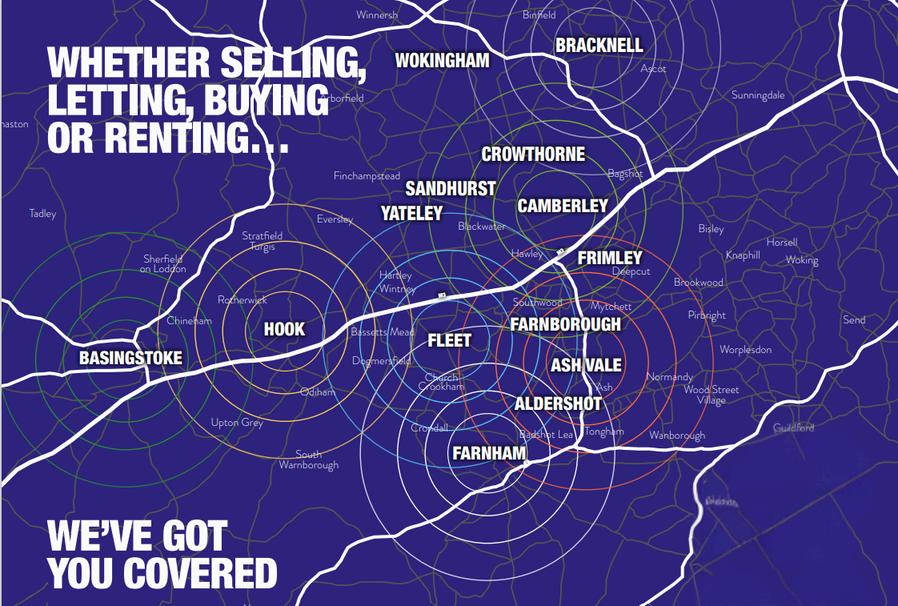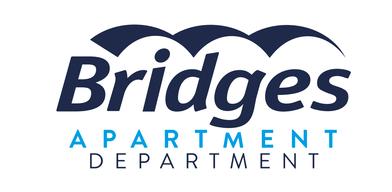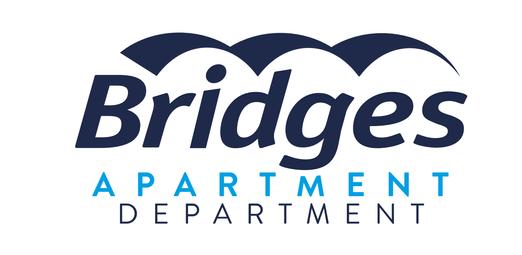

A BUYER'S GUIDE TO LEASEHOLD

Welcome to Your Leasehold Buyer’s Guide

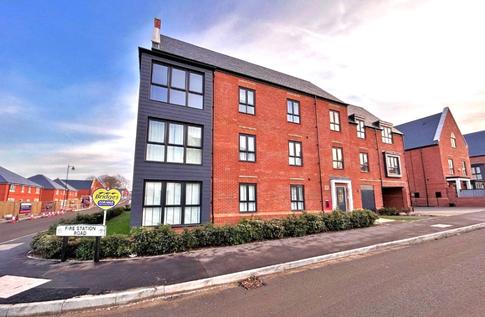
Inside, you’ll find guidance on:
What a lease actually is – and what it means for you
The key people involved in a leasehold property (freeholders, managing agents, etc.)
Who is responsible for what – inside your home and across the building Service charges, ground rent, reserve funds and what these pay for
What to consider before making changes or improvements to your flat
How major works are handled and when you’ll be consulted
The truth about common leasehold myths
Shared ownership explained
From understanding the structure of your lease, to breaking down annual costs like ground rent and service charges, through to who manages the building and what to do if you want to make alterations – this guide is your go-to resource
What to do if you ever need to make a complaint
We’re proud to be part of Bridges Estate Agents and to bring specialist leasehold knowledge to buyers across Surrey, Hampshire and Berkshire. Our team understands the finer details that come with apartment living – and we’re always on hand to support you at every step of your property journey.
We hope you find this guide useful – and if you ever need advice, just ask.
Understanding Leasehold
When you buy a flat in England or Wales, it’s usually on a leasehold basis. This means you own the right to live in the property for a set number of years, known as the “term”, but you don’t own the land or structure – that remains with the freeholder (or landlord).
As a leaseholder, you’ll be responsible for the inside of your home, while the building’s maintenance, insurance, and communal areas are usually managed by the freeholder or a managing agent – and paid for by you and your neighbours through service charges.


The length of the lease reduces over time from the date when it was originally granted. The outstanding term will therefore depend on what was left when you took over the lease. The lease will also expire automatically at the end of the term, although most long leaseholders have a statutory right to stay on as renting tenants at the end of the lease, buy the freehold or extend their lease.
What is a Lease?
A lease is a legally binding agreement between you and your landlord. It outlines: How long you can live in the property (typically 99, 125 or 999 years)
Your rights and responsibilities
What you own exclusively vs. what’s shared
What costs you’re liable for
When you buy a leasehold flat, you’re taking over the lease as it stands – meaning the term will have reduced. Mortgage lenders often require 80+ years left on the lease, so it’s worth checking early. Lease extensions are possible, and specialist advice is recommended.
Understanding Leasehold
What to Look for in a Lease:
Some key questions when reviewing your lease:
How long is left on the lease?
What are the annual costs? (Ground rent, service charges, reserve fund)
How are charges calculated? (Flat percentage, floor area, etc.)
Are there penalties for late payments?
Who is responsible for what? (Insurance, windows, balconies, boilers)
Are there restrictions? (Pets, flooring, subletting, alterations)
Are there requirements when you sell? (Deed of Covenant, Notice of Transfer)
Who’s Who in a Leasehold Block?
Freeholder – Owns the land and the building
Landlord – Often the freeholder, but could also be another party
Head Lessor – May lease the entire building and sublet individual flats
Leaseholder (You) – Owns the lease and the right to live in the property
Residents' Management Company (RMC) –
Sometimes leaseholders run the building themselves via a company


Here are the key parties involved in leasehold ownership:
Managing Agent – Appointed to run the day-to-day management
Property Manager – Your day-to-day contact (usually part of the managing agent)
On-Site Team – Concierge, caretakers, cleaners, etc.
Tenant – Someone renting the flat from a leaseholder
Responsibilities: Who Does What?

Landlord/Managing Agent You (the Leaseholder)
Maintain the structure (roof, lifts, shared facilities)
Insure the building (not contents)
Organise communal services
Alterations and Improvements
Maintain your flat’s interior
Insure your contents
Pay ground rent, service charges, and any reserve fund contributions
Check your lease for specific obligations (e.g. windows, balcony)
Thinking of making changes?
You may need the landlord’s written consent.
Likely to require consent: Unlikely to require consent:
Changing layout
Replacing windows
Installing hard flooring
Moving plumbing or electrics
Redecorating
New carpets
Like-for-like kitchen unit replacement
Consent may be simple or require a formal Licence to Alter, especially for structural changes. Charges may apply and conditions (e.g. hours of work, reinstatement) may be imposed.
Understanding Leasehold Costs


Here’s what you might pay each year:
Service Charges – Your share of the cost to maintain the building and shared areas
Ground Rent – An annual fee set in your lease
Reserve or Sinking Fund – Contributions saved for major future works
Licence to Alter Fees – If making changes
Lease Extension Fees – If you wish to extend your lease
Admin Charges – E.g. Notice of Transfer when selling
Understanding Leasehold Costs


Service Charges cover communal maintenance, including:
Building upkeep
Cleaning, lighting, gardening
Lift servicing
Insurance
Managing agent’s fees
Reserve Funds are collected over time for big-ticket items like:
Roof replacement
Lift upgrades
External painting
Think of it like a savings account for the building. It helps avoid large surprise bills down the line.
Major Works & Section 20 Consultations
If major works are needed and your contribution is over £250, your landlord must consult you through a formal process called a Section 20 consultation This ensures transparency and value for money. You’ll be invited to comment on the proposed works, contractors, and estimated costs.
Getting a Mortgage on a Leasehold Property

If you're buying with a mortgage, it's important to understand how leasehold can affect your ability to borrow. While mortgage lenders do lend on leasehold homes, there are a few extra hoops to jump through – especially when it comes to the lease term and the fine print around charges.
Here’s what you need to know before applying.
Can You Get a Mortgage on a Leasehold Property?
Yes – but with conditions. Most lenders will want to see that the lease meets their specific criteria before they approve your loan. Your solicitor and mortgage adviser will guide you through this, but here are the key factors that lenders consider.
1. Lease Length
One of the biggest factors is how long is left on the lease As a general rule: Most lenders prefer leases with at least 85 years remaining
Many won’t lend if the lease is under 70 years
If the term is too short, you may still be able to proceed by negotiating a lease extension before completion – something we can help guide you through.
2. Ground Rent and Service Charges
Lenders look carefully at the costs written into the lease, including:
Ground Rent – Some lenders will only accept leases where ground rent at the outset is no more than 0.1% of the property value
Review Clauses – Ground rent that doubles every 10 years can be a red flag
Service Charges – Excessive or unpredictable costs may affect affordability and resale potential
⚠ Note: Ground rents on new leases were banned in 2022. However, many older leases still include them. Reforms are expected under the Leasehold and Commonhold Bill to tackle unfair terms.
3. Absent Freeholders
If the freeholder cannot be contacted –known as an “absent freeholder” – this can complicate matters, particularly where permissions or consents are needed. Your solicitor will highlight this early in the process.
4. EWS1 & Cladding Considerations
If you’re buying in a block of flats, particularly one that’s over 18 metres tall or has cladding, a valid EWS1 form may be required by your lender This checks for fire safety risks and can affect your ability to secure a mortgage. If remedial works are planned (and especially if costs will fall to leaseholders), this may also be considered by lenders as part of their risk assessment.
5. Property Type
Certain types of property can also raise concerns for lenders, including:
High-rise buildings
Ex-local authority flats
Blocks without a lift over a certain number of floors
If you’re unsure whether a property may be affected, ask us – we’ll help you spot any red flags before you commit.
If you're buying a leasehold property with a mortgage, we strongly recommend speaking with our in-house mortgage adviser. They'll help you explore suitable options based on the lease details, the lender’s criteria, and your individual circumstances.
The Apartment Department Team

Our dedicated team offers unparalleled knowledge and experience in leasehold property sales, ensuring every transaction runs smoothly.

Let’s Fact Check!

Our Customer Charter
Leasehold sales, made simple. Buying or selling a leasehold property can feel like a maze. That’s where we come in. We know the ins and outs of leasehold sales – and we’re here to make the whole process as easy, clear, and stress-free as possible
With The Apartment Department, you’re in safe hands. Here’s what you can expect from us:
Straight-talking advice, from start to finish
No jargon, no waffle – just honest, expert advice tailored to you. We’ll break down the details, from lease lengths to service charges, so you know exactly where you stand.
Clear, open communication
We keep you updated every step of the way Whether it’s good news or a tricky situation, you’ll hear from us first –with real solutions to keep things moving.
A dedicated team on your side
You won’t be passed from pillar to post. You’ll have a Leasehold Specialist who knows your sale inside out, working hard behind the scenes to keep everything on track

Proactive problem-solvers
Leasehold sales can sometimes hit a snag – but we’re always one step ahead. We work closely with solicitors, management companies, and other agents to smooth out any bumps in the road
The right buyers, the best exposure
If you’re selling, we don’t just list your property and hope for the best. We actively market it to the right buyers, giving it the attention it deserves. If you’re buying, we’ll match you with apartments that suit you – and flag any leasehold quirks before you commit.
We keep the momentum going Leasehold sales can take longer – but we don’t sit back and wait. We chase solicitors, nudge management companies, and keep the whole process moving, so you can buy or sell faster.
Support beyond the sale
Need help with lease extensions? Want recommendations for local services? We’re still here for you, long after the paperwork is signed.
The Apartment Department –because leasehold doesn’t have to be complicated.
In summary…

Buying a leasehold property is an exciting and rewarding step – and with the right support, it doesn’t need to be complicated. At The Apartment Department, our sole focus is on apartments and leasehold homes across Surrey, Hampshire and Berkshire. We’re here to give you the clarity and confidence you need to move forward, informed and assured
From your very first enquiry to the day you collect your keys – and beyond – we’ll be on hand to explain every aspect of the process in plain English That includes helping you understand the terms of your lease, what you’re responsible for, what your landlord or managing agent must provide, and the types of costs you can expect both now and in the future.
We know that leasehold can feel unfamiliar, especially if you’re buying your first apartment – but with the right guidance, it becomes second nature. That’s where we come in.
Whether you’re:
A first-time buyer looking for a stylish space own,
Upsizing to accommodate your next chapter Downsizing for a more manageable lifestyle, Or investing in a long-term opportunity,
we’ll guide you every step of the way.
Our team are specialists in leasehold property, a proud to offer straightforward advice, local expe exceptional service with a personal touch
Ready to take the next step?
We’d love to talk. Get in touch with The Apartm Department today and let’s make your move sim smooth, and successful.

Glossary
A quick reference to key leasehold terms:
Common Parts
Shared areas of the building enjoyed by all residents – such as hallways, gardens, stairwells and lifts – which are not part of any one flat.
First Tier Tribunal (Property)
A formal legal body that makes decisions about disputes related to service charges and leasehold issues.
Freeholder
The individual or company that owns the land and building. The freeholder may also act as the landlord.
Freehold Company
A company that owns the freehold. Its shares are often owned by the leaseholders, commonly referred to as "having a share of the freehold".
Ground Rent
An annual charge set out in the lease, payable to the freeholder for the right to occupy the property. This may be nominal (e.g. a “peppercorn”) or more substantial.
Head Lessor
An intermediary who holds the lease for the entire building and then grants individual leases to flat owners. In this case, the Head Lessor acts as the landlord.
Landlord
May be the freeholder or a third party. Responsible for managing the building, maintaining common areas, and collecting service charges.
Lease
A legal agreement between the leaseholder and landlord outlining your right to live in the property for a specific term (typically 99, 125, or 999 years), and setting out all mutual responsibilities.
Leaseholder
The person who holds the lease on the flat –effectively the owner for the term of the lease. Also referred to as the tenant, lessee or flat owner.

Management Fees
Charges for the day-to-day management of the building. These are usually a small part of the total service charge.
Manager
Could be the landlord or a managing agent responsible for overseeing the maintenance of the property.
Managing Agent
A professional company appointed to manage the building and its communal areas on behalf of the landlord or freeholder.
Property Manager
The individual who oversees the daily running of the building – typically an employee of the managing agent.
Reserve Fund / Sinking Fund
Money set aside over time to cover major future works (e.g. new roof or lift replacement). These funds are held in trust for the benefit of all leaseholders.
Residents’ Management Company (RMC)
A company made up of leaseholders which may be responsible for managing the building. It usually acts as the landlord under the lease.
Service Charges
Regular payments made by leaseholders to cover the costs of maintaining the building’s structure and communal areas, as well as services such as cleaning, gardening, insurance, and management.
Service Charge Year
The 12-month accounting period for service charges, set out in your lease. The landlord must provide end-of-year financial statements showing how the money was spent.
Term
The length of your lease – how many years you have the right to live in the property. This reduces annually from the date the lease was originally granted.
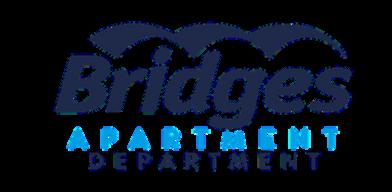
Let The Journey Begin...
